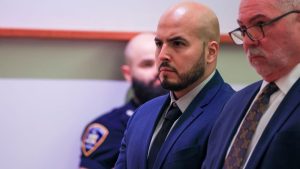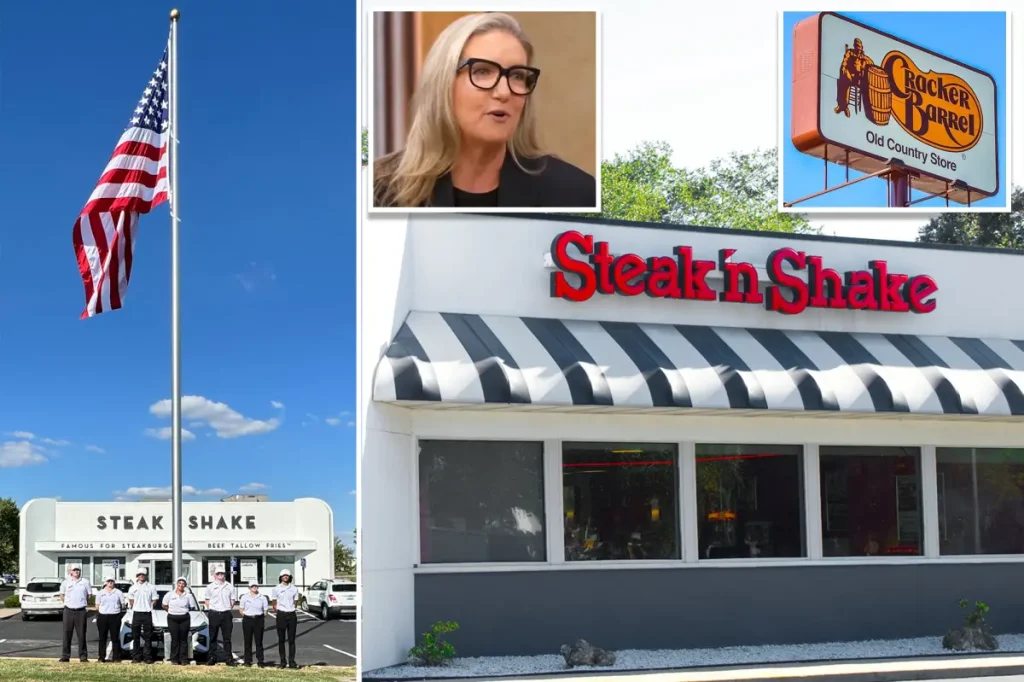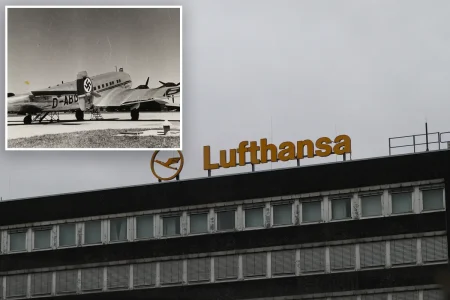From Immigrant to Fast-Food Patriot: Sardar Biglari’s American Dream
In an era where corporate culture often shies away from patriotic displays, Steak ‘n Shake is doubling down on American pride with a bold statement: installing the tallest legally permissible American flags at all 400 of its locations. This red, white, and blue initiative is part of the chain’s broader “Make Americana Great Again” campaign, which also includes Bitcoin-friendly payment options and a return to traditional beef tallow for frying—a move that earned praise from health secretary RFK Jr. Behind this unapologetically patriotic stance is Iranian-born CEO Sardar Biglari, whose personal journey embodies the quintessential American dream. “American values and traditions? Of course we are proud of that. Who wouldn’t be?” Biglari told The Post in an exclusive interview. “My family came here with nothing. I started with nothing but an idea. America is the best country on the planet. You can make dreams become reality so long as you put the effort in.”
Biglari’s story begins in Tehran, where he was born two years before the Islamic Revolution upended Iran. His father, a brigadier general in the Shah’s Imperial Army, was imprisoned by the revolutionary government. After his mother negotiated his release, the family remained under house arrest until they dramatically escaped under cover of darkness, fleeing to the United States when Sardar was just seven years old. Arriving in San Antonio in 1984, the family started over with a Persian rug import business. Young Sardar knew only two English words: “hi” and “bye.” This humble beginning gave Biglari a profound appreciation for American opportunity, which would fuel his later business philosophy. By 18, he had founded his first company, an internet service provider called INTX.net, which he sold in 1999. The proceeds became the foundation of his business empire, as he began investing in restaurant chains including Friendly’s Ice Cream and Western Sizzlin Corp.
Biglari’s most notable turnaround came in 2008 when he acquired the financially distressed Steak ‘n Shake, which was hemorrhaging $30 million annually. Within a year, he transformed it into a profit machine generating $100,000 daily. Though the COVID-19 pandemic later created financial challenges, Biglari pivoted to a leaner, franchise-heavy model that’s now thriving. “When you are turning around a business, you are a sculptor. When Michelangelo sculpted, he said he saw the angel in the marble and carved until he set him free,” Biglari explained. His business philosophy emphasizes simplicity and authenticity: “Our customers want authenticity, quality products, great service, and reasonable prices. Nothing complicated. Sophistication lies in doing the simple things very well.” This back-to-basics approach extends to Steak ‘n Shake’s patriotic branding and its recent switch from seed oils to traditional beef tallow for frying—a change that aligned with health-conscious consumers and caught the attention of RFK Jr., who personally visited a Texas location to celebrate the move.
While building his Steak ‘n Shake empire, Biglari has simultaneously waged a years-long battle with competitor Cracker Barrel. His company, Biglari Holdings, owns 3% of Cracker Barrel, and he has launched seven unsuccessful proxy battles since 2011 to gain a board seat. The conflict intensified this summer when Cracker Barrel attempted a $700 million modernization, abandoning its rustic aesthetic and mascot Uncle Herschel for a minimalist rebrand. Biglari had predicted disaster a year earlier, writing: “What the Company has been doing with its remodel program is embarking on a strategy to undifferentiate itself—and at a high cost.” The rebrand indeed backfired spectacularly, tanking Cracker Barrel’s stock and forcing a hasty return to its traditional roots. Biglari hasn’t been subtle in his criticism, selling MAGA-style hats with messages like “Fire Cracker Barrel CEO” and “Biglari Was Right About Everything” at Steak ‘n Shake locations, and even purchasing billboards to mock the failed rebrand.
Cracker Barrel’s CEO Julie Felss Masino has defended her company against Biglari’s attacks, recently telling investors that he makes “many misinformed statements.” But Biglari remains undeterred, viewing the conflict as a clash of business philosophies. While Cracker Barrel invested in trendy ventures like an urban craft cocktail startup (which went bankrupt in 2020) and artisanal muffin shops, Biglari doubled down on traditional American values at Steak ‘n Shake. The contrast couldn’t be clearer: as one chain attempted to shed its heritage, the other embraced America with giant flags, Bitcoin burgers, and “MAHA-approved” beef tallow fries. Today, Biglari describes his San Antonio-based Biglari Holdings as a “museum of businesses” that includes oil companies and substantial investments in Jack in the Box and Ferrari, reflecting his diverse business interests beyond the restaurant industry.
Perhaps most revealing of Biglari’s business philosophy is his approach to franchising. Unlike traditional models that require significant upfront investment, Steak ‘n Shake’s system targets those “long on ability but short on capital”—a nod to his own humble beginnings. “I am a believer in meritocracy. That is the system we implemented at Steak ‘n Shake, with great success,” he explains. “We are building a business around the principle of equal opportunity… Our system of meritocracy is about placing the right people into positions of power and ownership.” This commitment to creating pathways for others mirrors Biglari’s personal journey from an immigrant child who barely spoke English to a restaurant tycoon who proudly displays his name on Steak ‘n Shake signage and on the masthead of Maxim magazine, which he acquired in 2016. In an industry often defined by bland corporate conformity, Biglari stands out not just for his business acumen, but for his willingness to weave his personal story and values—particularly his appreciation for American opportunity—into the very fabric of his brands.















